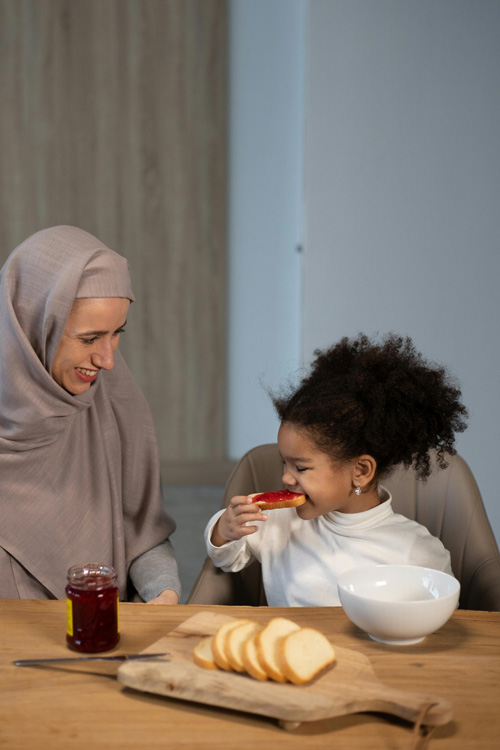Voices in Touch Newsletter: Edition 3
Stay up to date on policy and advocacy topics affecting your work in Olympia, King County, and Seattle.
The fight to protect vital services like early childhood education and childcare subsidies takes center stage in the upcoming legislative session.
The Rundown
In the face of a projected 10–12-billion-dollar budget shortfall over the next 4 years, Governor Jay Inslee released his final budget proposal aiming to address this concern and protect essential services like ECEAP in Washington State.
Governor Inslee proposed to balance this budget by imposing a 1% tax on wealth exceeding 100 million dollars. This would generate approximately $10 billion from around 3,400 of Washington State’s wealthiest individuals. In addition, Governor Inslee proposed an increase in the Business and Occupation tax for businesses in the “services or other activities” category which is projected to raise another 2.6 billion. Both measures are designed to prevent any harm to low-income, working-class Washingtonians and vital services such as education, mental health services and public safety.
In alignment with Governor Jay Inslee’s budget proposal, October of 2024, the Department of Children, Youth and Families announced their 2025 Legislative Proposal that contained packages related to ECEAP and Home visiting services. Govenor Inslee called on agencies in Washington to help come up with solutions to address this budget deficit. One key point of DCYF proposal is to maintain childcare subsidy base rates at the 85th percentile which in end will help more families have access to childcare services. These packages are crucial to understanding the proposed budget of ECEAP funding, slots, requirements and eligibility for early childcare in Washington state.
As the 2025 legislative session prepares to begin on January 13th,these proposals will be central to the discussions on how to best address the budget shortfall and balancing the deficit. The new Governor-elect Bob Ferguson will be sworn into office on January 15th, 2025, and present his own proposal soon after. This is followed by the state legislature reviewing both proposals before finalizing their own budget, which is expected to be completed by the end of the session in April.
Resources
Nurturing Healthy, Happy, and Well-Developed Children: Essential Tips for East African Immigrant Families
Written by: Zahra Mahamud
Raising children in a new cultural environment presents opportunities and challenges, particularly for East African immigrant families striving to balance traditional values with the demands of modern life. At Voices of Tomorrow, we understand these families' unique obstacles and are committed to providing support that helps children thrive. This article offers practical tips on early childhood education, healthy eating, and mental health to help East African parents nurture their children's growth and development.
 Early Childhood Education: Laying the Foundation for Success
Early Childhood Education: Laying the Foundation for Success
Early childhood education plays a pivotal role in shaping a child's future. For East African immigrant families, it’s crucial to engage with your child's education while preserving cultural heritage. According to research from the National Institute for Early Education Research
(NIEER), children who attend high-quality early childhood programs are more likely to succeed academically and socially.
Integrate Cultural Learning: Reading to your child daily is a powerful way to support language development. Consider incorporating books in both English and your native language to reinforce bilingual skills and maintain a connection to your cultural roots. Additionally, engage in play-based learning that encourages creativity, problem-solving, and social interaction. Simple games like building blocks, puzzles, and role-playing can significantly contribute to cognitive development.
Balance Tradition and Modern Education: While it's important to embrace the educational practices of your new environment, don’t forget to teach your children about their cultural heritage. This balance will help them develop a strong sense of identity and pride in their background.
Nutritional Tips: Healthy Eating for Growing Children
A well-balanced diet is crucial for your child's physical and cognitive development. Unfortunately, many immigrant families face challenges related to food insecurity, which can impact their children's health. The Centers for Disease Control and Prevention (CDC) reports that healthy eating habits established in childhood can lead to better health outcomes throughout life.
Embrace Traditional Foods: An East African cuisine offers many nutritious options that are both delicious and culturally significant. A well-balanced diet can be achieved by incorporating fresh vegetables and fruits, which are rich in essential nutrients. Including these traditional foods in your child's diet not only supports their health but also helps maintain a strong connection to your cultural heritage.
Prioritize Fresh, Whole Foods: Processed foods, often high in sugar, salt, and unhealthy fats, should be limited. Cooking at home allows you to control ingredients and ensure your family is eating healthily. Encourage your child to eat a variety of foods from all food groups such as fruits, vegetables, grains, protein, and dairy to support their growth and development.
Hydration Matters: Encourage your child to drink water regularly, avoiding sugary drinks that can lead to dental issues and obesity. Herbal teas, especially those traditional to East African culture, can be a healthy and comforting alternative.
 Mental Health in Children: Building Resilience from a Young Age
Mental Health in Children: Building Resilience from a Young Age
Mental health is a critical component of overall well-being, yet it’s often overlooked, especially in young children. The American Psychological Association (APA) highlights that immigrant children may face unique stressors, including language barriers, cultural adjustment, and the pressure to succeed in a new environment. These stressors can significantly affect a child's mental health if not addressed early.
Create a Supportive Environment: Children thrive when they feel safe, loved, and supported. Encourage open communication within the family, allowing your child to express their feelings and concerns. Show empathy and understanding, particularly when they are navigating the complexities of adapting to a new culture.
Teach Coping Skills: Equip your child with strategies to manage stress, such as deep breathing, mindfulness, and physical activity. These practices can help them develop resilience and emotional regulation.
Monitor for Signs of Stress: Be attentive to changes in your child's behavior, such as withdrawal, irritability, or difficulty sleeping. These could be indicators of stress or anxiety. If necessary, seek professional support to address these issues early.
Foster Social Connections: Encourage your child to build friendships and participate in community activities. Social interactions provide emotional support and help children feel connected to their peers and community.
Raising children as an immigrant parent comes with unique challenges, but it also offers the opportunity to blend cultural richness with new experiences. By integrating traditional values with modern practices, East African immigrant families can ensure their children grow up healthy, happy, and well-adjusted. At Voices of Tomorrow, we are dedicated to supporting your family through every step of this journey, providing the resources and guidance you need to help your children succeed. With your involvement and love, we can build a brighter future for the next generation, fostering resilience, health, and well-being in every child.
RESOURCES
Early Childhood Education:
National Institute for Early Education Research (NIEER) on the benefits of early childhood education: NIEER
Healthy Eating:
Centers for Disease Control and Prevention (CDC) on healthy eating for children: CDC - Healthy Eating
Mental Health:
American Psychological Association (APA) on mental health for immigrant children: APA - Immigration and Mental Health

